News and Announcements
Read the latest news from Northwestern University Feinberg School of Medicine’s Mesulam Institute for Cognitive Neurology & Alzheimer's Disease. The links below take you to articles where you can learn more about our members' latest achievements, awards and honors.
-
 06.25.2025
06.25.2025An artificial intelligence-based imaging approach may be an effective tool for distinguishing patients with Parkinson’s disease from those with other closely related diseases sooner than current methods, according to a recent study published in JAMA Neurology.
The post AI Imaging Approach May Help Identify Parkinson’s Sooner appeared first on News Center.
-
 06.11.2025
06.11.2025Scientists have developed a new method to track changes in synaptic protein lifetimes across the entire brain, according to a study published in Nature Neuroscience.
-
 06.09.2025
06.09.2025A compound found in the gut may reduce some of the manifestations of Alzheimer’s disease, according to a Northwestern Medicine study published in the Journal of Clinical Investigation.
The post Compound Produced by Gut Bacteria May Slow Alzheimer’s Progression appeared first on News Center.
-
 05.21.2025
05.21.2025Patients and families joined faculty, students and trainees on May 15 for Alzheimer Day, an annual event hosted by the Mesulam Center for Cognitive Neurology and Alzheimer’s Disease to showcase dementia and aging research conducted throughout Northwestern and bring those discoveries to the community.
The post Advancing Research and Care at Alzheimer Day appeared first on News Center.
-
 05.13.2025
05.13.2025More than seven million Americans aged 65 years and older currently live with Alzheimer’s disease, according to recent estimates from the Alzheimer’s Association. As the prevalence of the disease increases, so does the need for research that identifies underlying mechanisms of disease to enhance the effectiveness of current therapies and inform new therapeutic strategies.
The post Pioneering New Techniques in the Fight Against Alzheimer’s Disease appeared first on News Center.
-
 04.21.2025
04.21.2025Northwestern University Trustee Kimberly K. Querrey has made a $10 million gift to create and enhance the Querrey Simpson Institute for Regenerative Engineering at Northwestern University.
The post Northwestern Launches Pioneering Medical Research Institute With $10 Million Gift From Trustee Kimberly Querrey, Bringing Her Total University Giving to $391 Million appeared first on News Center.
-
 04.18.2025
04.18.2025A small-molecule compound developed by Northwestern scientists improves neuron health in animal models of Alzheimer’s disease, according to a new study published in PNAS.
-
 04.11.2025
04.11.2025A new Northwestern Medicine study published in Science has identified a new set of genes that contribute to the risk of Parkinson’s disease, opening the door to previously untapped drug targets for treating the disease.
-
 04.10.2025
04.10.2025Scientists have developed a novel, robust proteomics technique that can more accurately identify and spatially characterize thousands of proteins in single cells within human tissue samples, as detailed in a recent study published in Nature Communications.
-
 03.11.2025
03.11.2025Northwestern Medicine scientists have uncovered new insights into how neurofilaments act like Velcro in neurodegenerative diseases, clogging up the brain and preventing normal function, according to a study published in the journal JCI Insight.
-
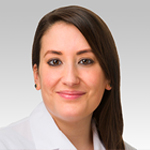 03.07.2025Nearly 150 alumni and friends of the medical school gathered in Naples, Florida, on February 26 to hear the latest breakthroughs in brain health featuring experts from Northwestern University Feinberg School of Medicine, including the Mesulam Center's Tamar Gefen, PhD.
03.07.2025Nearly 150 alumni and friends of the medical school gathered in Naples, Florida, on February 26 to hear the latest breakthroughs in brain health featuring experts from Northwestern University Feinberg School of Medicine, including the Mesulam Center's Tamar Gefen, PhD. -
 03.06.2025
03.06.2025A Northwestern Medicine study published in Nature Medicine used a new technique called spatial transcriptomics to examine the brain’s response to Alzheimer’s therapies, revealing new molecular targets that could enhance the effectiveness of current therapies and not just slow the disease, but potentially improve patient outcomes. David Gate, PhD, assistant professor of Neurology in the Ken and Ruth Davee Department of Neurology and director of the Abrams Research Center on Neurogenomics, led this research.
-
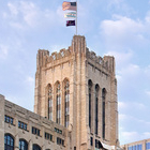 03.06.2025
03.06.2025A new Northwestern Medicine study suggests a promising alternative to current approaches to Alzheimer’s disease: enhancing the brain’s own immune cells to clear amyloid plaques more effectively.
-
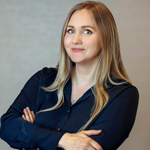 02.20.2025Regular physical activity is one of the best ways to reduce dementia risk. The Mesulam Center's Jane Stocks spoke about the benefits of staying active and the potential correlation between an active lifestyle and cognitive function.
02.20.2025Regular physical activity is one of the best ways to reduce dementia risk. The Mesulam Center's Jane Stocks spoke about the benefits of staying active and the potential correlation between an active lifestyle and cognitive function. -
 02.10.2025
02.10.2025Northwestern Medicine scientists have discovered new details about how the human genome produces instructions for creating the building blocks of life, according to a new study published in Science Advances.
-
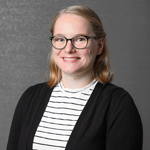 02.03.2025Dr. Molly Mather, assistant professor of psychiatry & behavioral sciences at the Mesulam Center joined Lisa Dent and WGN to highlight discuss the Northwestern University SuperAging Program (NUSAP) and give tips for living a longer and healthier life.
02.03.2025Dr. Molly Mather, assistant professor of psychiatry & behavioral sciences at the Mesulam Center joined Lisa Dent and WGN to highlight discuss the Northwestern University SuperAging Program (NUSAP) and give tips for living a longer and healthier life. -
 01.30.2025
01.30.2025Investigators have discovered that activity in two widely distributed brain networks previously considered separate are actually correlated with each other and together play a key role in recognition memory, according to Northwestern Medicine study published in Cell Reports.
-
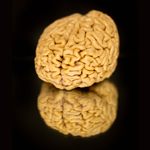 01.16.2025Through decades of research on SuperAgers, Mesulam Center researchers are reshaping perceptions of aging, highlighting the potential for longevity, vitality, and resilience in later life.
01.16.2025Through decades of research on SuperAgers, Mesulam Center researchers are reshaping perceptions of aging, highlighting the potential for longevity, vitality, and resilience in later life. -
 01.07.2025
01.07.2025An international team of scientists has uncovered new insights into how previously unstudied X chromosomes in women may contribute to Alzheimer’s Disease risk, according to a multicenter study published in the journal Molecular Psychiatry.
The post Exploring Genetic Sex Differences in Alzheimer’s appeared first on News Center.
-
 12.20.2024
12.20.2024Feinberg experienced a year of stellar growth and scientific achievement in 2024, from honors and awards to unprecedented research discoveries.
-
 12.19.2024
12.19.2024For the first time in humans, breathing rhythms during sleep have been linked to hippocampal brain waves that strengthen memory consolidation, according to a recent Northwestern study.
-
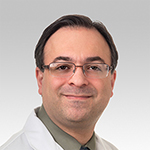 12.12.2024On December 10, 2024, the Northwestern University Music and Medicine Program celebrated their milestone 10th Musical Museum concert, a musical and social engagement event, aiming to create a secure and enriching environment for individuals affected by Alzheimer's disease, related conditions, and their care partners. The event featured Dominika Zamara, renowned operatic vocalist, accompanied by Borna Bonakdarpour, pianist, cognitive neurologist, and director of the Music and Medicine Program.
12.12.2024On December 10, 2024, the Northwestern University Music and Medicine Program celebrated their milestone 10th Musical Museum concert, a musical and social engagement event, aiming to create a secure and enriching environment for individuals affected by Alzheimer's disease, related conditions, and their care partners. The event featured Dominika Zamara, renowned operatic vocalist, accompanied by Borna Bonakdarpour, pianist, cognitive neurologist, and director of the Music and Medicine Program. -
 12.06.2024
12.06.2024With a new $20 million grant from the National Institute on Aging, Northwestern Medicine investigator, Linda Teplin, PhD, is extending the work of the Northwestern Juvenile Project to study the long-term consequences of incarceration on age-related conditions, including Alzheimer’s and other age-related diseases. This project is the only large-scale longitudinal study of its kind tracking health and outcomes of detained juveniles in the years following their release.
-
 12.06.2024Music can bridge the gaps memory loss creates. Dr. Borna Bonakdarpour and the Northwestern Music and Medicine Program are studying how music can tap into the brain’s resilience, fostering connection and joy.
12.06.2024Music can bridge the gaps memory loss creates. Dr. Borna Bonakdarpour and the Northwestern Music and Medicine Program are studying how music can tap into the brain’s resilience, fostering connection and joy. -
 12.05.2024
12.05.2024A new study has found the more recently evolved and advanced parts of the human brain that support social interactions are in constant communication with an ancient part of the brain called the amygdala.
-
 11.07.2024Prioritizing social connections may be a powerful addition to the brain health checklist, says Dr. Tamar Gefen, assistant professor of psychiatry and behavioral sciences and co-director of the Northwestern University SuperAging Research Program (NUSAP). Research now shows that regular social engagement can help preserve brain volume, slow cognitive decline, and lower dementia risk in older adults, adding to the established benefits of healthy eating, exercise, and adequate sleep.
11.07.2024Prioritizing social connections may be a powerful addition to the brain health checklist, says Dr. Tamar Gefen, assistant professor of psychiatry and behavioral sciences and co-director of the Northwestern University SuperAging Research Program (NUSAP). Research now shows that regular social engagement can help preserve brain volume, slow cognitive decline, and lower dementia risk in older adults, adding to the established benefits of healthy eating, exercise, and adequate sleep. -
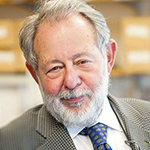 11.05.2024With primary progressive aphasia (PPA), problems with language and communication typically deteriorate gradually over time. Initial symptoms are sometimes attributed to anxiety or stress until the ongoing symptoms become disruptive enough to prompt further assessment by a specialist. Dr. Marsel Mesulam joined the AFTD to discuss how to diagnose PPA.
11.05.2024With primary progressive aphasia (PPA), problems with language and communication typically deteriorate gradually over time. Initial symptoms are sometimes attributed to anxiety or stress until the ongoing symptoms become disruptive enough to prompt further assessment by a specialist. Dr. Marsel Mesulam joined the AFTD to discuss how to diagnose PPA. -
 11.05.2024Borna Bonakdarpour, MD, is an associate professor of Neurology in the Division of Behavioral Neurology. His laboratory uses multimodal neuroimaging to study the underlying neural mechanisms of language impairment (aphasia) and impairment in other areas of cognition and use this information to develop and evaluate effective treatments for aphasia.
11.05.2024Borna Bonakdarpour, MD, is an associate professor of Neurology in the Division of Behavioral Neurology. His laboratory uses multimodal neuroimaging to study the underlying neural mechanisms of language impairment (aphasia) and impairment in other areas of cognition and use this information to develop and evaluate effective treatments for aphasia. -
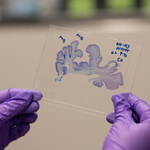 11.05.2024Advocate Amy Bouschart traveled from Arizona to Chicago to receive a proclamation from Mayor Brandon Johnson, officially recognizing FTD Awareness Week in the city. Bouschart, whose husband Frank lives with frontotemporal degeneration (FTD), now hopes this recognition sparks further legislative action to improve healthcare access for those with early-onset diagnoses.
11.05.2024Advocate Amy Bouschart traveled from Arizona to Chicago to receive a proclamation from Mayor Brandon Johnson, officially recognizing FTD Awareness Week in the city. Bouschart, whose husband Frank lives with frontotemporal degeneration (FTD), now hopes this recognition sparks further legislative action to improve healthcare access for those with early-onset diagnoses. -
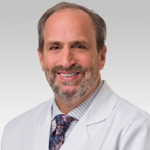 10.24.2024A recent investigation into Alzheimer’s drug trials reveals that some volunteers were not informed of their genetic predisposition to brain injuries, raising ethical concerns about informed consent. The Mesulam Center's Rudolph Castellani, MD, discussed with The New York Times his autopsy findings of a trial participant and the broader implications of transparency in clinical research.
10.24.2024A recent investigation into Alzheimer’s drug trials reveals that some volunteers were not informed of their genetic predisposition to brain injuries, raising ethical concerns about informed consent. The Mesulam Center's Rudolph Castellani, MD, discussed with The New York Times his autopsy findings of a trial participant and the broader implications of transparency in clinical research.